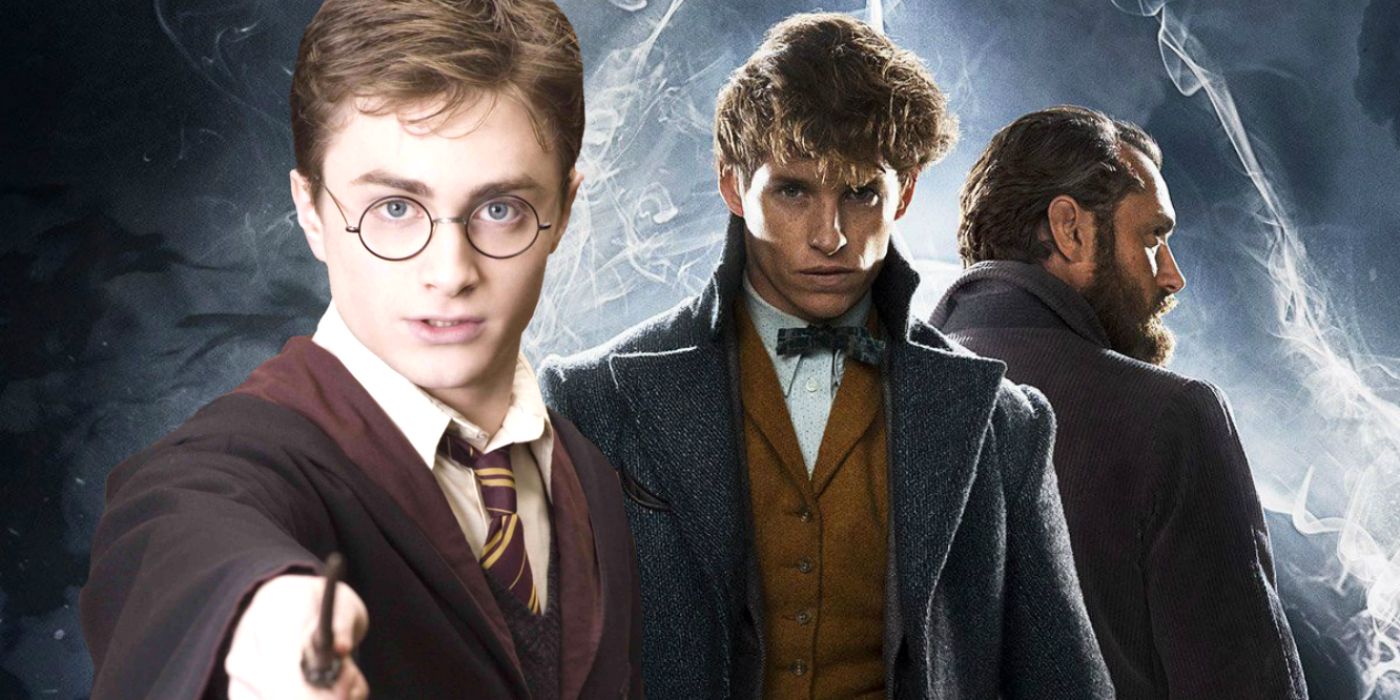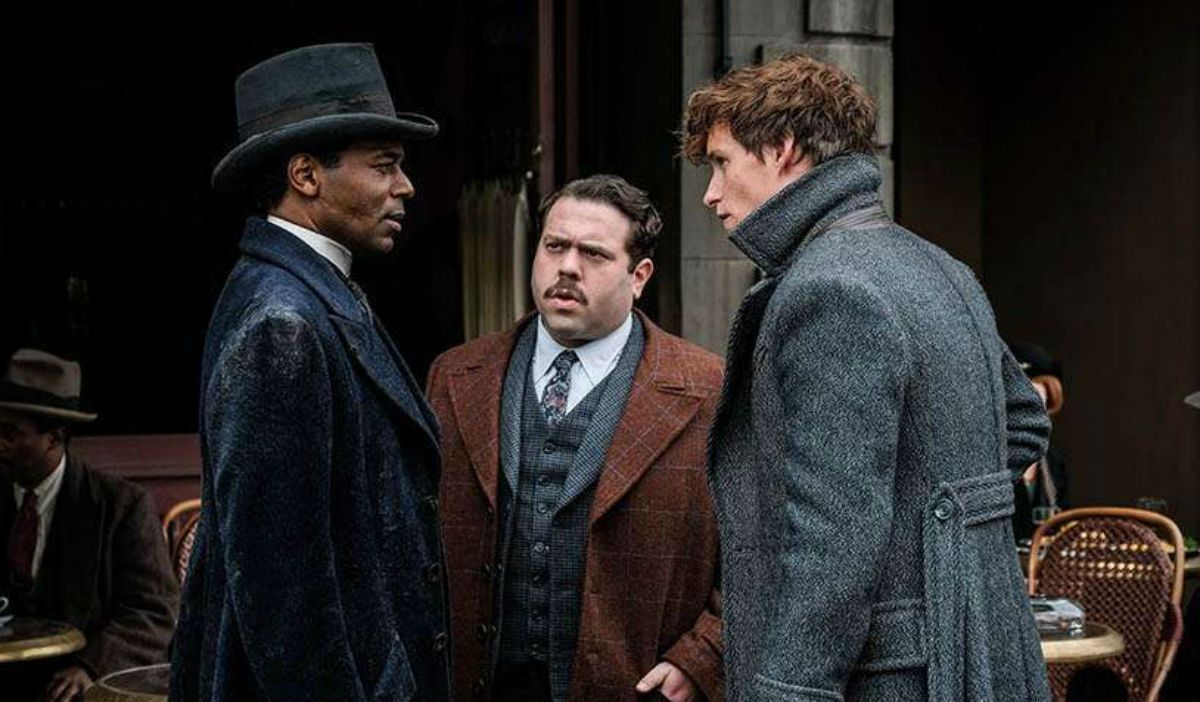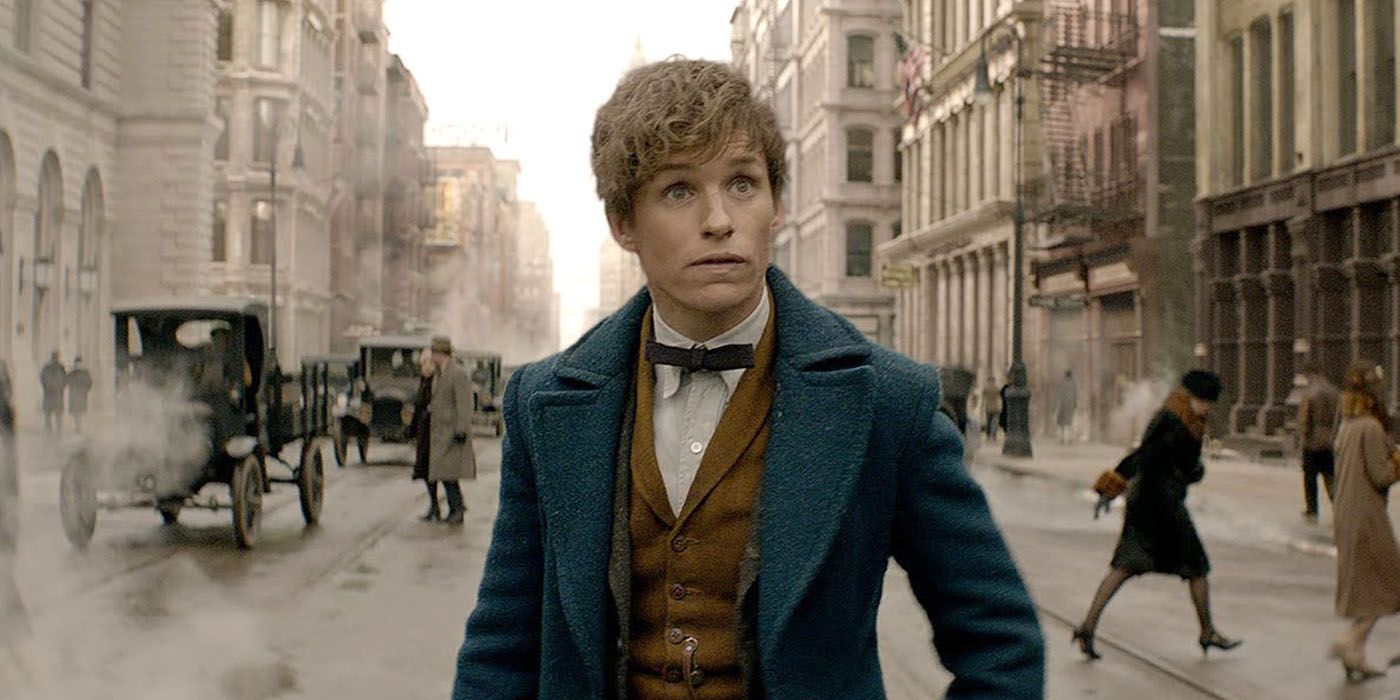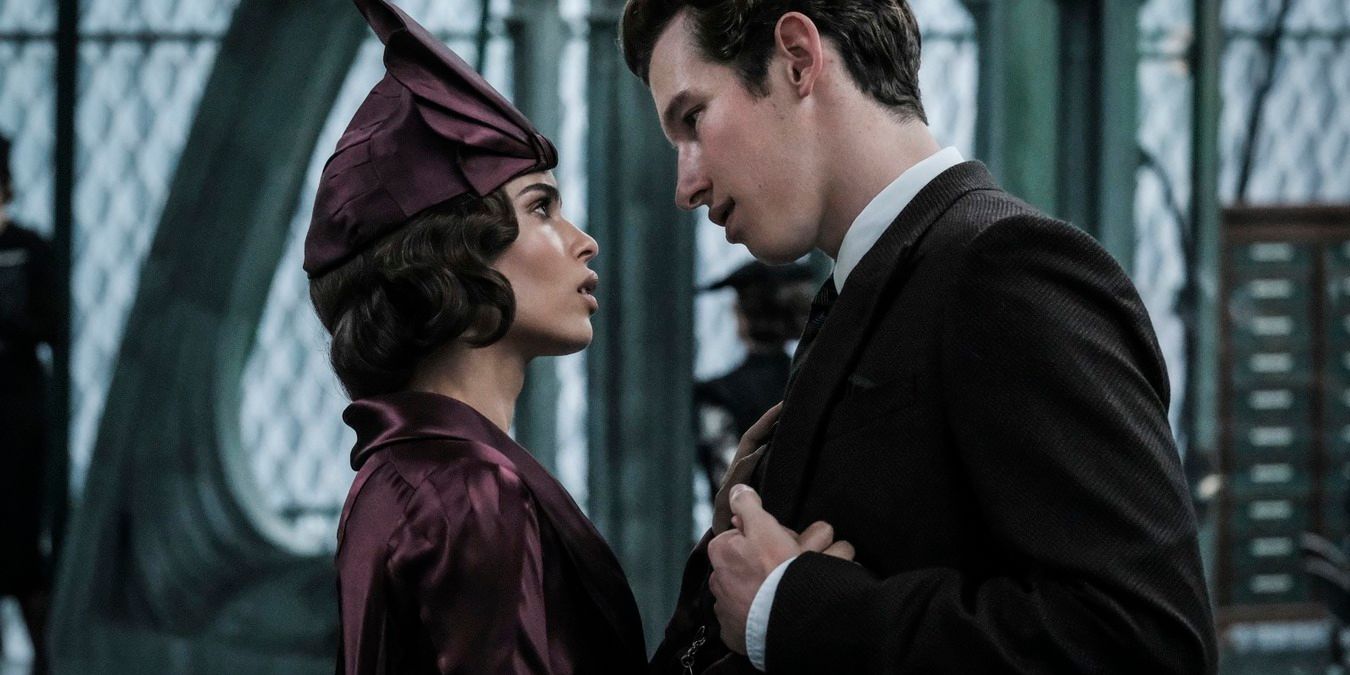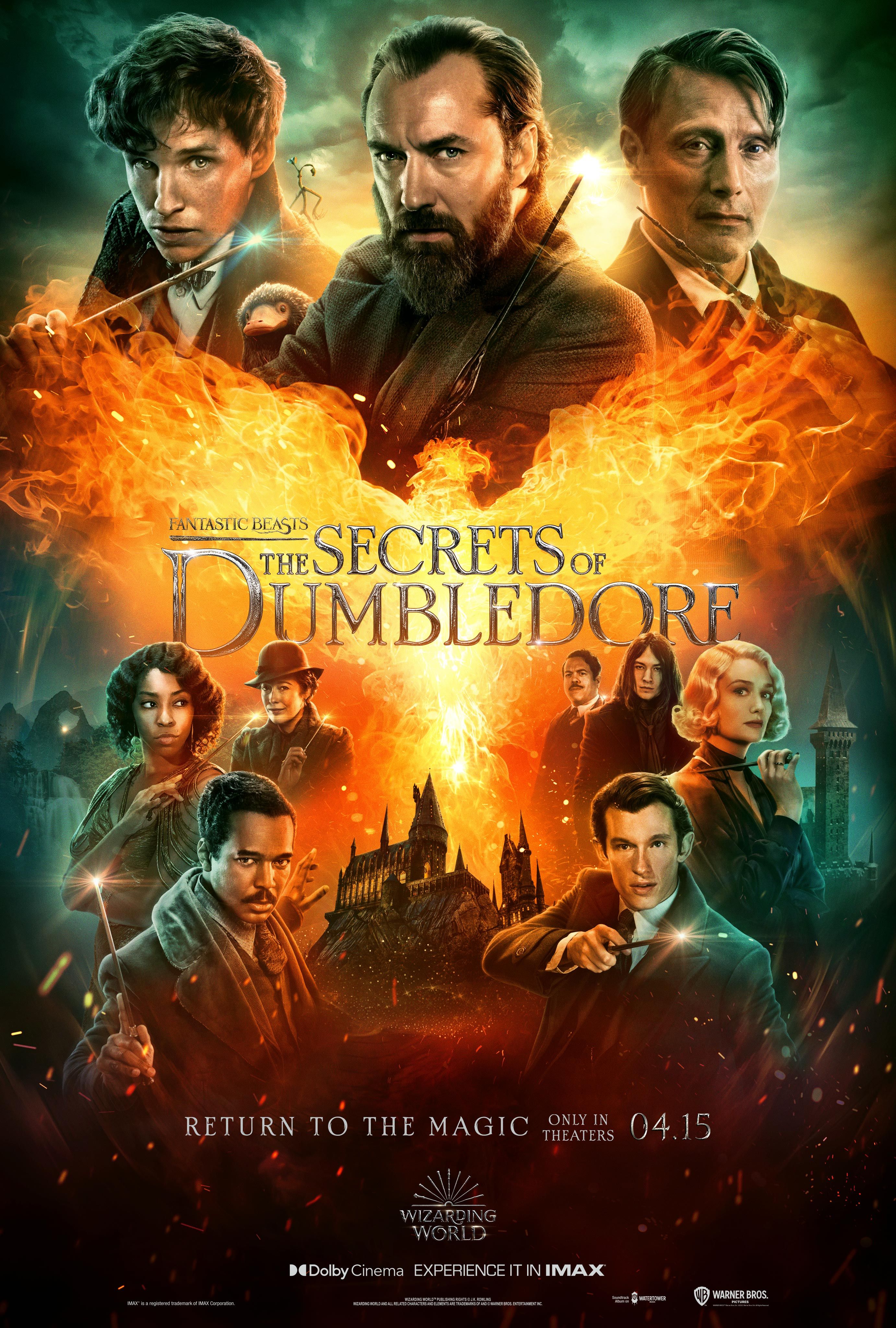It's time for Warner Bros. to admit that the Fantastic Beasts franchise has been a failure, and instead launch a full Harry Potter reboot. While Fantastic Beasts 3 is happening (with two more movies supposed to follow), the spin-off series hasn’t been as beloved as Warner Bros. hoped it would be.
After eight films and a total worldwide gross of over $7.7 billion, the Harry Potter franchise became one of the highest-grossing film series ever made. For generations of viewers, the Harry Potter series is the be-all and end-all of their nostalgic bliss, the novels and movies that defined an era. While it's unlikely the property, from the books to the films and beyond, will ever stop making money for Warner Bros., it's not hard to understand why the studio would be keen to keep the franchise going in some form or another.
In 2016, Warner Bros. released Fantastic Beasts and Where to Find Them, a movie set in the wizarding world of the Harry Potter books several decades before those characters' own stories. The film, based on a short book J.K. Rowling wrote for charity, moved the story to America, a first for the Potter series, and focused on Newt Scamander, an expert in magical creatures. Predictably, the movie was a hit, grossing over $814 million worldwide. Warner Bros. and Rowling revealed that the film would be the first in a five-movie series and that the mythos would expand to include iconic Potter characters like Albus Dumbledore. Fans seemed excited, but only two movies in, the franchise has faltered hard and it seems enthusiasm may be drying up quicker than the studio had predicted.
Fantastic Beasts 2 Proved a Disappointment to Fans and Warner Bros.
2018's Fantastic Beasts: The Crimes of Grindelwald did not win over fans or novices alike. The increasingly jumbled story and confusing narrative left many viewers feeling overwhelmed. The movie's sudden change of track from being a relatively light-hearted exploration of the wider wizarding world to a more conventional Potter prequel about the waging war of Grindelwald led the story to lose some of its magic. Add to that questions over the film's decisions regarding major characters (most notably Queenie Goldstein's U-turn into full-on wizard fascist, and the closing plot twist about Credence Barebone/Aurelius Dumbledore), and the elephant in the room that was Johnny Depp, and The Crimes of Grindelwald came with far more baggage than necessary.
The film earned a paltry 37% rating on Rotten Tomatoes and became the lowest-grossing Harry Potter movie to date, earning $653.8 million from a reported budget of $200 million. While that technically puts The Crimes of Grindelwald in the black in terms of profit, it’s a sliver of what a project like this was expected to earn. The diminishing returns after only two movies put the Fantastic Beasts franchise in an oddly precarious state. This is Harry Potter, after all. Surely it should be doing better than this?
Warner Bros. Needed Fantastic Beasts To Be a Hit
This has placed the future of Fantastic Beasts in an ambiguous place. A franchise that should have been a sure-fire bet – an action-packed and star-studded worldwide wizarding adventure, spun-off from one of the most popular book series ever written – now seems like a costly risk for Warner Bros. That’s not good news for the studio given that the Potter-verse remains one of their biggest and most prized IPs. They need this to be a hit, especially if they want to keep up with Disney in terms of family-friendly content.
Warner Bros. has invested a lot in the Potter universe, not just in terms of the films but the wider financial benefits, from merchandising to theme park rights and much more. There aren’t many major properties in the pop culture world with the enduring value of the Potter series and that’s something that’s become more crucial than ever as studios invest further in tentpole franchises with worldwide universal appeal.
Warner Bros. has returned to steadier ground with their DC movies after the shaky establishment of the DCEU but Harry Potter is still arguably the jewel in their crown. It’s certainly the series with the greater nostalgic pull over its audiences right now. There’s no reason they can’t extend the story long after (or before) the books, but whatever ideas they seemingly had for Fantastic Beasts in its origins seem to have fallen off-track in a way that audiences are not responding to. If they continue as planned and do try to aim for five movies, it could be a major risk, especially if the budgets remain high and all the aspects from The Crimes of Grindelwald that audiences disliked remain at the forefront.
How Warner Bros. Should Reboot Harry Potter
It feels almost inevitable that Warner Bros. will one day reboot the entire Harry Potter franchise from scratch. The movies may be considered pretty damn great by most fans and remakes unnecessary, but given how short the pop culture cycle has become on such matters, it’s a tad surprising that something hasn’t already been announced. Lord of the Rings received a big-screen adaptation considered near perfect by some but that hasn’t stopped Amazon from greenlighting its own television adaptation of Middle-earth with a reported budget of half a billion dollars. Indeed, television may be the perfect direction for Warner Bros. to take the Potter-verse once it’s done with Fantastic Beasts.
Like most other studios and media empires, Warner Bros., under the banner of WarnerMedia, is investing heavily in the streaming service market. HBO Max, the WarnerMedia service, will launch in May 2020 with an enviable array of old and new content. If they truly want to make a splash and blow away the rest of the competition, then a TV series adaptation of the Potter series would be perfect. What's more, in many ways, the Harry Potter world is better suited to television than film.
Inevitably with any adaptation, the films cut out large swaths of the novels that fans greatly missed and that required structural and narrative changes that some felt let the original material down. A series in the vein of Game of Thrones’ approach to scope and detail would give some much-needed breathing room to the layers of the wizarding world, its politics, and the vast extended ensemble. It would not need to worry about pandering to American preconceptions of Britishness, which was a major problem for the first two films directed by Chris Columbus. There would also be space to delve more into flashbacks or asides happening around the central narrative, from Harry’s parents to the downfall of the Ministry of Magic to the intersections of the wizarding and muggle worlds. Fans have shown themselves to be more eager for this sort of detail as it pertains to Harry himself rather than the time Fantastic Beasts covers, and certainly more than Rowling’s endless add-ons to the canon.
There’s still a chance that Warner Bros. can get the Fantastic Beasts series back on track but its failures are impossible to ignore signifiers of the problems inherent to expanding a beloved narrative beyond its well-known source material. Game of Thrones stumbled with this too once it ran out of books to adapt. Harry Potter is too valuable for them to abandon entirely but if the studio wants to get future generations hooked on the story then there’s no better place to start with that than once more at the very beginning.

